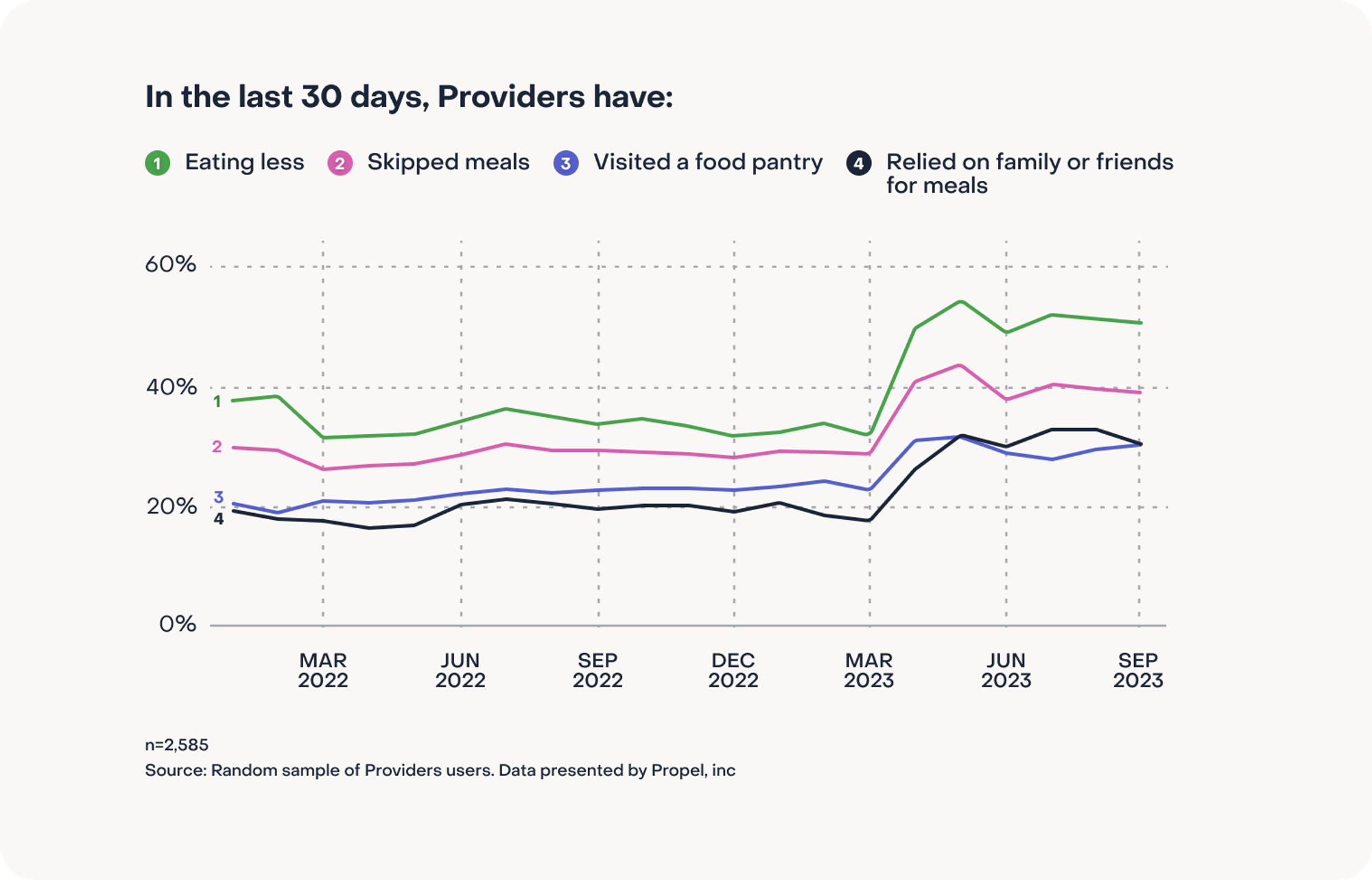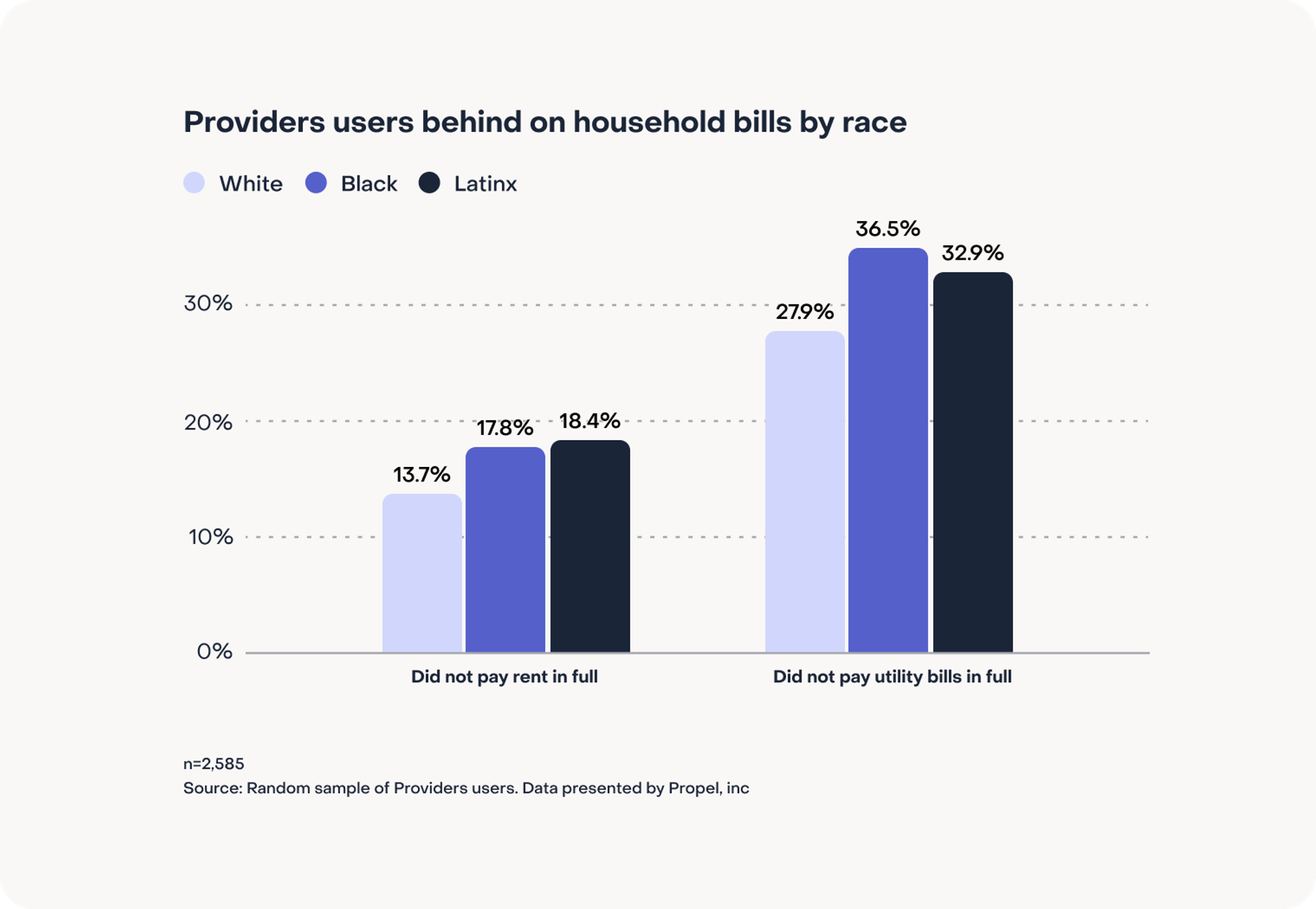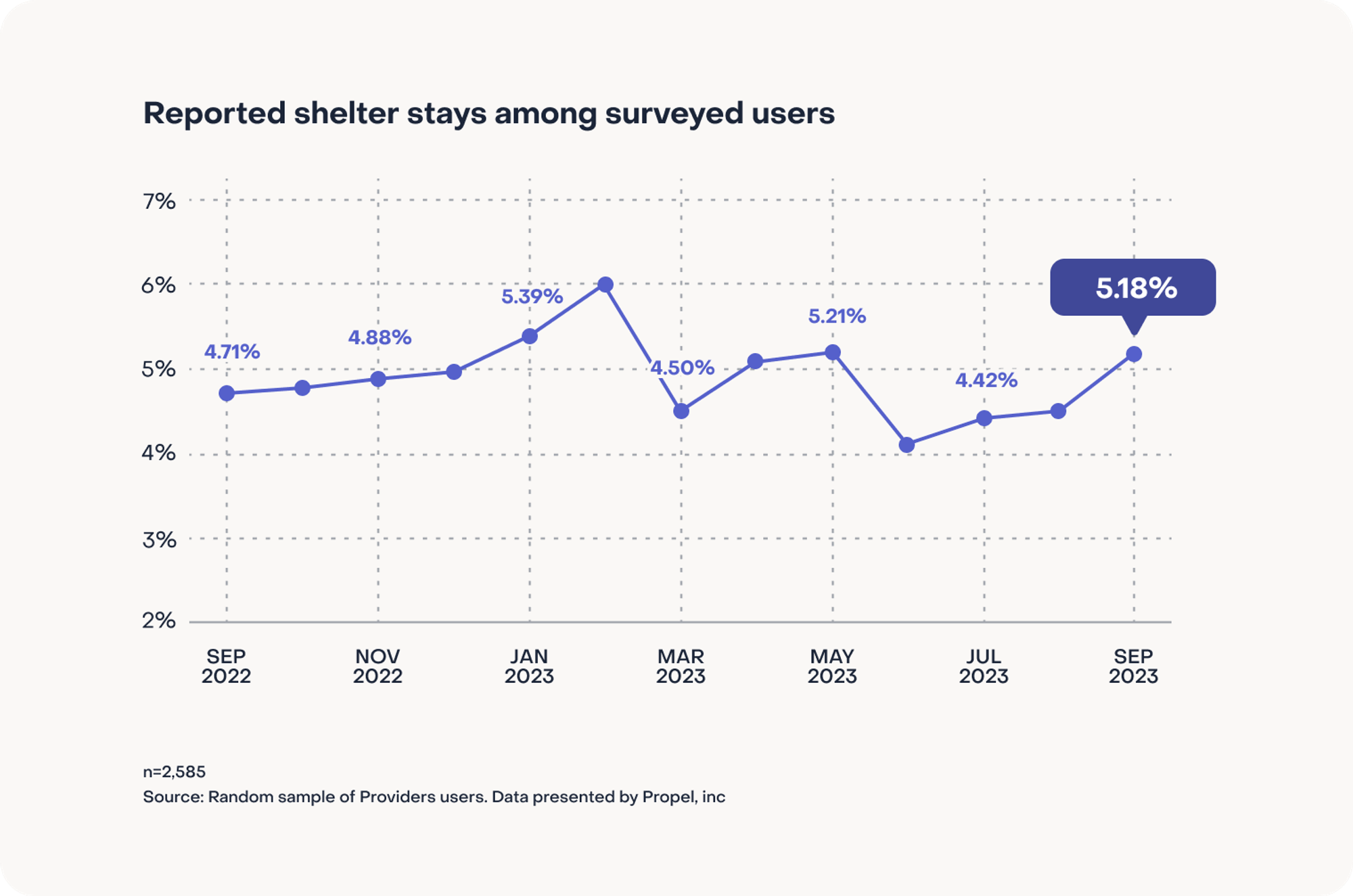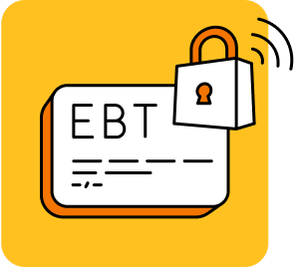Report
Propel Household Pulse Survey: September 2023
The following insights come from a 10-minute multiple choice and open response survey conducted by Propel to a random sample of 2,584 of over 5M Propel users from September 1 - September 14, 2023. All respondents are EBT cardholders.
Table of contents
- Demands for food assistance have remained elevated six months after the end of pandemic-era SNAP expansions.
- Propel households of color are more likely to be experiencing extreme financial insecurity and to be falling behind on monthly bill payments.
- Shelter stays and measures of housing uncertainty have ticked up slightly after a summer of extreme weather.
Table of contents
- Demands for food assistance have remained elevated six months after the end of pandemic-era SNAP expansions.
- Propel households of color are more likely to be experiencing extreme financial insecurity and to be falling behind on monthly bill payments.
- Shelter stays and measures of housing uncertainty have ticked up slightly after a summer of extreme weather.
Table of contents
FOOD INSECURITY#food-insecurity
Demands for food assistance have remained elevated six months after the end of pandemic-era SNAP expansions.#demands-for-food-assistance-have-remained-elevated-six-months-after-the-end-of-pandemic-era-snap-expansions
- Food insecurity indicators were stable from August to September: To make ends meet, over 50% of respondents are eating less, over 30% are visiting food pantries, and over 30% are relying on family and friends for meals and groceries – all figures that are substantially and durably elevated from March.
- Stubbornly high food prices continue to exacerbate the burden of SNAP benefit reductions on food pantries nationwide. While inflation has slowed, the Consumer Price Index (CPI) for food is predicted to increase nearly 6% year-on-year in 2023.
- In September, nearly 78% of surveyed households spent over $100 on food on top of their SNAP benefit.
“I live in an apartment complex and I have driven myself and my friends to food pantries a few times a month every month to help us save money and to get better complete meals because we don’t have enough SNAP benefits to buy groceries that will last us until the next month. I’ve lived here for one year now and several of my neighbors are like family to me now because we always share and look out for each other anytime we have/need anything.” - Propel user, OH

FINANCIAL INSECURITY#financial-insecurity
Propel households of color are more likely to be experiencing extreme financial insecurity and to be falling behind on monthly bill payments.#propel-households-of-color-are-more-likely-to-be-experiencing-extreme-financial-insecurity-and-to-be-falling-behind-on-monthly-bill-payments
- Over 36% of Black households and 33% of Latinx households couldn’t pay last month’s utility bills in full, compared to just 28% of white households.
- 61% of Black respondents report not having necessary household items compared to 57% of Latinx respondents and 55% of white respondents.
- Surveyed Black households were 1.2 times more likely than white households to believe their cash on hand would only last one or two days at most.
Over 18% of Latinx households and 18% of Black households couldn’t pay rent in full last month, compared to just 14% of white households.
“I had to skip bills to buy groceries. My car was repossessed and I missed several days of work.”- Caitlyn, IN

“Broke my ankle just over a month ago and have been out of work since due to my type of employment. I sold my car in hopes of not getting behind on bills.”- Diane, MI
HOUSING INSECURITY#housing-insecurity
Shelter stays and measures of housing uncertainty have ticked up slightly after a summer of extreme weather.#shelter-stays-and-measures-of-housing-uncertainty-have-ticked-up-slightly-after-a-summer-of-extreme-weather
- From torrential flooding in Vermont to wildfires in Hawaii, 2023 has already been a record-breaking year for climate disasters around the country.
- From August to September, the share of surveyed users reporting that they stayed in a shelter at least one night in the last month rose 15% to over 5% of respondents.
- From August to September, the share of surveyed users that say they will not be able to remain in their current housing next month rose 12% to over 4% of respondents.
“I've been living in a homeless shelter for over a year. Luckily we have a small supply on hand of food items that we’re able to access. I have helped my family and friends by extending a portion of the supplies from the shelter. I also help by dropping off SNAP paperwork for those without transportation..”- Charissa, HI

